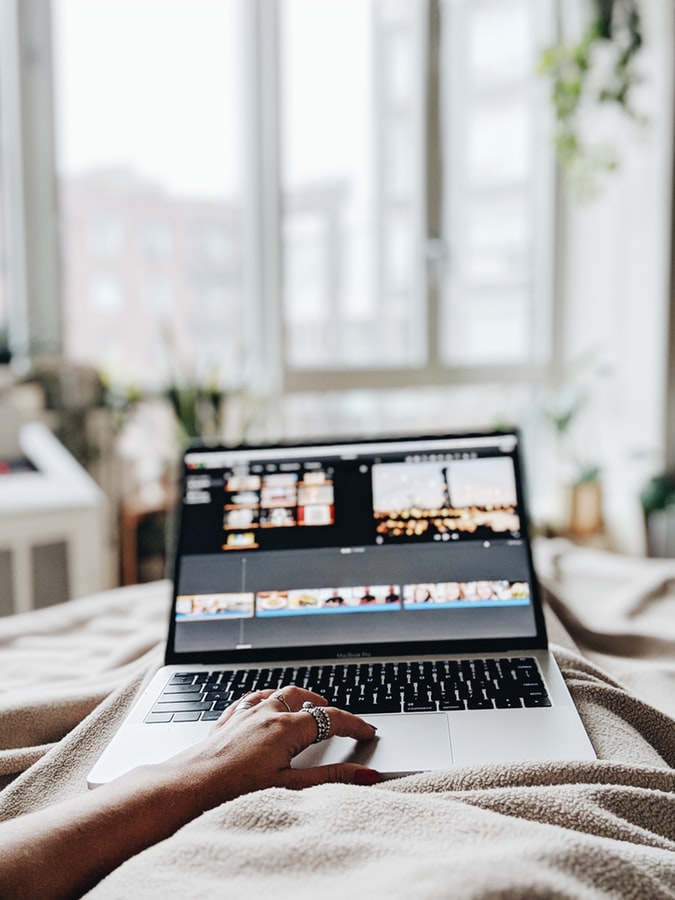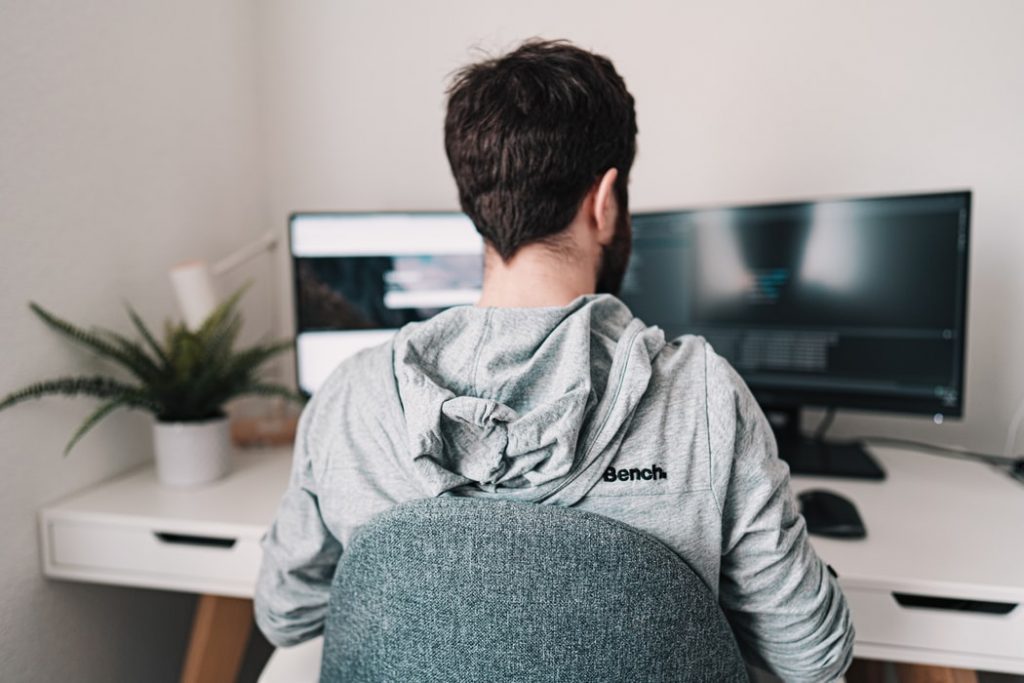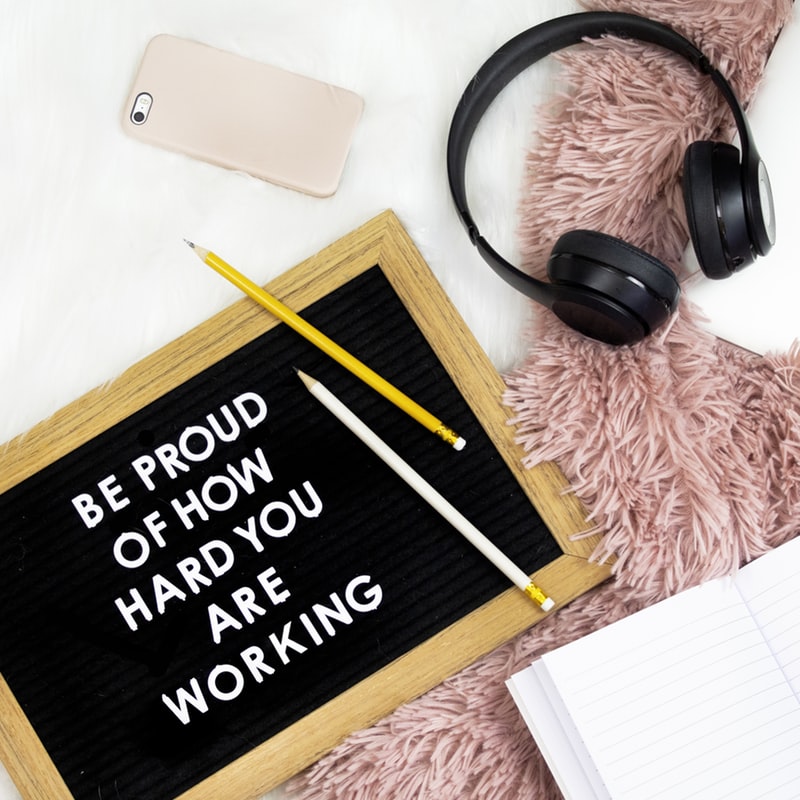Mentorship April 15, 2020
Not the kind of person who ever thought they'd be working from home? We're here to help!


Working from home, or working remotely is not a new concept.
The global pandemic of COVID-19 is forcing millions of people to work from home and they aren’t used to it at all. How do you do your normal 9-to-5 when cooped up at home? We’ve got you, girl boss.
On a normal day, in order to make it to the office, I need to leave the house at least by 8 am to make it for 9 am. Before I even get in my car, I have to get up, get dressed, eat breakfast, pack my lunch, and do whatever else needs to get done.
Of course, I’m not alone when it comes to commuting. One study found that the average American will spend up to 19 workdays in traffic per year.
So, when you’re working from home, the time you spend in traffic is no longer an issue. If you’re not a morning person, it can be so tempting to just get in another hour of z’s before turning on your computer and starting your day. After all, if you wake up at 8:50, you’ll for sure be ready for work by 9 am, so no harm no foul, right?
However, during these times, a lot of studies are emphasizing having a sense of normal routine.
So, if you usually get up and shower for a jumpstart of energy, do that. Plus, not to sound like your mom, but breakfast is an important meal, so you should be getting up and getting some food into your stomach before getting to work.
That’s not to say you can’t sleep in a little later than usual since you won’t be sitting on the highway for an hour. Just don’t go overboard.

Listen. I know that similarly to waking up a little later, it may be tempting to just not change out of pajamas to get to work. It’s one less thing to worry about after all!
However, it’s just too comfy.
In an article posted on Today, psychologist Cathleen Swody said, “Dressing pulled together helps us feel pulled together. Research has found that people feel more competent when wearing business clothes.”
Again, the biggest chunk of experts’ advice is to try to stick to a normal routine during this quarantine. Getting dressed is just another thing to do daily, along with showering and brushing your teeth.
I personally notice that I feel more productive if I have clothes that make me feel productive. And yes, that includes a bra.
Technically, your boss at the office can’t make you wear a bra to work. However, there is still a lot of stigma in our society against women who don’t wear bras. It is still by and large considered, “unprofessional.”
I couldn’t find any science to back up why wearing a bra while working from home would be at all productive. The articles I did read were more a matter of opinion, although some mentioned briefly that wearing a bra can help with posture which is something you need to pay attention to if you’re working in bed (which you shouldn’t, but that’s for the next section).
Dressing for work when you’re working from home is honestly just psychological. I just feel as though if my boobs are together, so is my life. I don’t wear shoes inside though, I’m not a crazy person.


Anyone who has ever worked remotely will tell you to have separate workspaces in your home. This way, your brain can make positive associations: that the bed is a place for sleeping and not for working.
The problem with lying down in bed to do your work is that your body is used to that being your relaxing spot. It can make it harder to do work. Not only that, when it’s actually time to hit the hay, but you may also find it harder to sleep having been working from this same spot for eight hours.
Not to mention, if you’re lying at an awkward angle, it could be bad for your neck and back.
If you don’t have a desk, try doing your work at the kitchen or dining room table. If you have roommates or children that will be too much of a distraction for you, maybe try to at least move a chair into your bedroom so you’re sitting up straight and not sunk into your mattress.


When I talk about multitasking in this instance, I’m talking about mixing assignments from work with chores at home. Block out the eight hours you’re supposed to be at the office and only work those eight hours. This means don’t be putting loads of laundry in between assignments.
This is the phenomenon of “switchtasking” which was coined by Dave Crenshaw, a motivational speaker and author. Part of his theory is that switching between multiple tasks can create the illusion that we are doing more work than we actually are. On his website, he asks you to imagine this scenario:
“Imagine this: you’re at your desk, focused on a project, when your phone rings. You stop and switch your focus to the conversation with a coworker. After that talk ends, you return back to your research, losing several minutes trying to get back into the mindset of where you left off. If you’re a Chaos Master like me, you may even end up tackling a completely different task and forgetting all about the research until much later.”
Crenshaw describes himself as a “chaos master:”
“These are people who are highly creative and their biggest challenge is learning how to be organized in a way that doesn’t hurt that creativity.”
I would absolutely describe myself as a chaos master, and I’m sure a lot of you also fall into this category. Sometimes while I’m reading or editing something I will have a burst of inspiration for an article to write. Or, maybe I’m in the middle of writing something and I think that maybe this thought would be better for a completely separate article.
What happens to me then is I have a couple of half-finished articles that need serious editing, when I could have just put all of my focus on the original project.
Even though I am part of a magazine staff and not a freelance writer/editor, I do still have to figure out ways to optimize eight hours of my day to get the best, high-quality work done. What I have found, is making lists with the highest-priority assignments at the top, will keep me from doing things that aren’t as important.
“Every time you bounce back and forth from one task to another, you’re paying the hefty price of lost hours,” Crenshaw says.
This is sort of the same advice as before, but a little bit different. As great as it might be not to have your boss or nosy co-workers looking over your shoulder, try not to text or do anything else super distracting while working from home. I would say to put your phone away or turn it off, but if your boss needs to reach you from their respective home office, then you need to keep it on you.
It turns out, according to science, that background noise like music or television might actually help you work and focus better. So maybe it would be okay to have your favorite sitcom going as you plug away but make sure you’re not paying too much attention to it.
To be honest, I wouldn’t recommend watching TV while working, especially if you already have trouble concentrating. Plus, having your home office be as similar to your real office is important for having a sense of normalcy. Do you have FRIENDS re-runs playing at the office? If not, it may be better to not have it going while working from home.


It might be tempting to just work throughout the day non-stop. I know sometimes when I’m in the zone, it can be hard to pry myself away from the computer.
However, breaks are important. You may feel more productive the more you work, but real productivity comes when you respect your body’s boundaries and needs.
Working from home, you now don’t need to worry about packing a lunch because you have everything you need in your kitchen. If you are only entitled to a half-hour lunch break, maybe make your meal the night before so that you can dig right in the next day at noon and take advantage of your break time.
Now, I know this tidbit may seem confusing since you’re already at home. However, this is a similar point to when I was talking about taking your lunch break.
There needs to be a work/life balance, possibly even more so when you’re working from home. The lines all start to blur, so do something that makes you feel like you’ve clocked out. When it’s 5 pm, turn your computer off and do something else. Maybe take a walk around the block to get some fresh air and when you come back inside it’ll feel like you have, “come home.”
Again, it can be tempting to just keep working if you’re in the zone. However, you don’t need to keep working just because you’re not trying to beat traffic or catch your train home.
After you, “get home,” spend the rest of the evening doing the things you like to do. Whether it’s spending time with your family or doing some sort of hobby, it’s important that once you’ve left the work headspace, you stay out of it until 9 am tomorrow.

